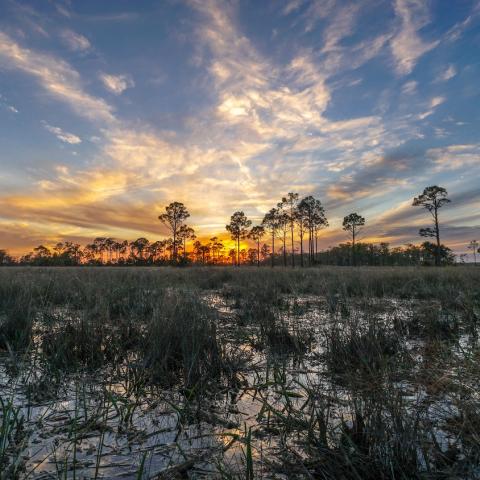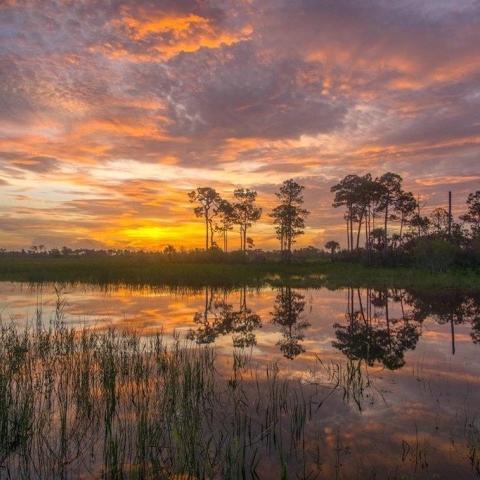
Florida officials say 5,000 Burmese pythons have been removed from the Everglades ecosystem in south Florida/NPS file
Five-thousand is a big number, particularly when you're counting Burmese pythons. The Florida Fish and Wildlife Conservation Commission and the South Florida Water Management District, along with outside support, say they have removed 5,000 of the pythons from the Everglades ecosystem, according to a news release from the Conservation Commission.
That number represents an incredible improvement in capturing the snakes, as it was just last September when officials said the running tally of removed pythons reached 900.
“We’ve learned through the Python Challenge that experience counts when finding and removing Burmese pythons,” said Florida Fish and Wildlife Conservation Commission member Rodney Barreto. “We can’t win the battle alone. It’s one team, one mission. We need the support of these experienced python hunters as well as the partnership with the South Florida Water Management District.”
According to South Florida Water Management District Board Member Ron Bergeron, “Every snake counts. Each invasive python eliminated represents hundreds of native Florida wildlife saved."
The big constrictors first were spotted in the Everglades back in 1979, and they've reproduced quickly in that habitat, which offers them plenty of food and shelter. They have been blamed for "precipitous declines" in mammals that once were commonly seen in parts of the Everglades National Park.
Because Burmese pythons pose a significant threat to the Everglades ecosystem, Everglades National Park and the Florida Wildlife Commission, along with state, federal, tribal, and local partners, have invested millions of dollars and countless hours in developing and testing ways to remove pythons from the Everglades.
The public can help control nonnative invasive wildlife by reporting sightings to the FWC’s Exotic Species Hotline at 888-IveGot1 (888-483-4681), online at IveGot1.org or by using the free smartphone app IVEGOT1. If possible, take a picture and note the exact location of the sighting. Python Action Team and Python Elimination Program members respond to reports of large constrictors and other priority species to remove these harmful invaders from the wild.
Burmese pythons became established in Florida as a result of escaped or released pets. It is illegal to release nonnative species into the wild and can negatively impact Florida’s native wildlife and habitat. The FWC’s Exotic Pet Amnesty Program allows pet owners to surrender nonnative or exotic pets without penalty. Visit MyFWC.com/PetAmnesty for more information.




 Support Essential Coverage of Essential Places
Support Essential Coverage of Essential Places







Comments
What happened to those 5,000 pythons? Kabobs or something else? Just curious, they couldn't have just been 'transplanted' to another location, right?
Kabobs. Boots maybe. Years ago there was rumors that a local pizzeria had python sausage.
https://www.nationalparkstraveler.org/2012/12/when-ordering-everglades-pizza-you-might-want-hold-python22374
History Channel has a show called Swamp People and one of the guys on it went to the Everglades in a few episodes to help the park remove pythons. He said they were used for footwear, etc.